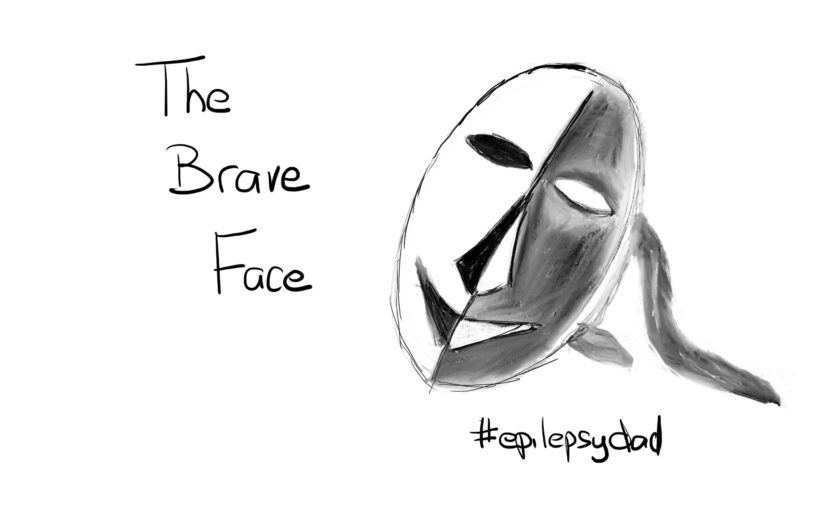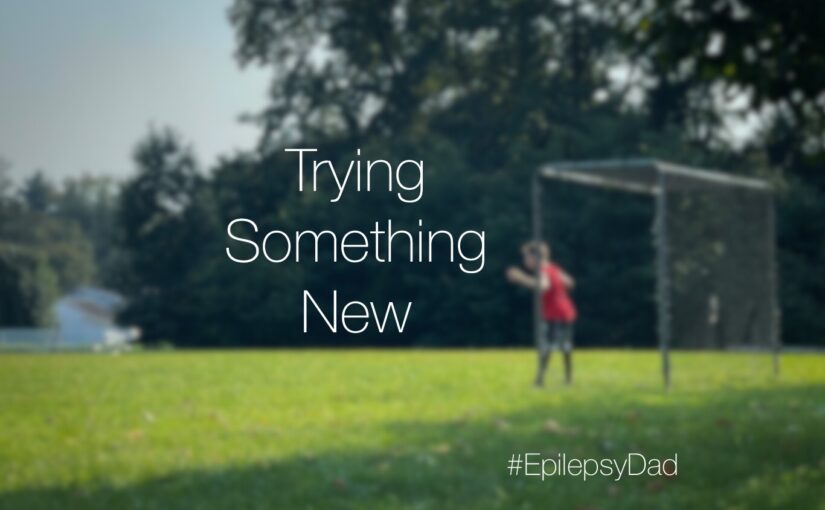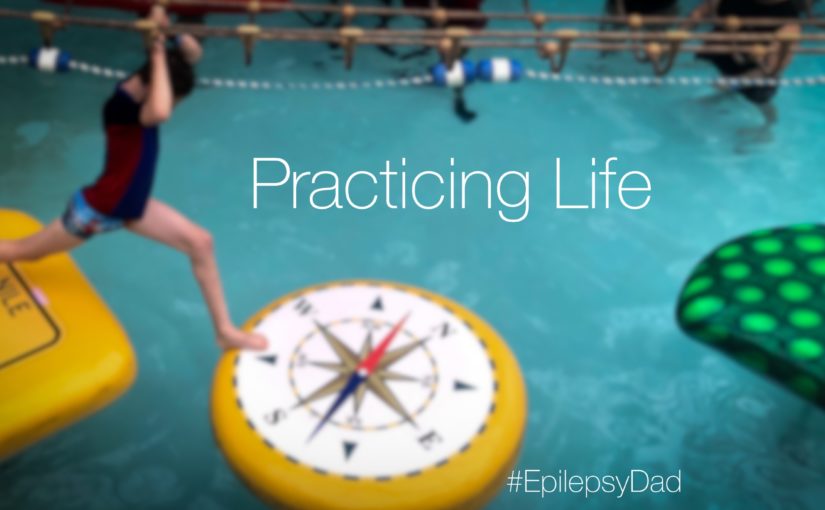As caregivers, we become skilled at putting on a brave face.
Every weekend, I play tennis at a club near our house. I’ve been playing there for a few years, and a group of us have become friendly. We ask about each other’s lives and families, even though many of us have never met their families. A few, though, met my wife and son when we first became members, including a few who happen to be doctors and know of my son’s epilepsy.
After my goddaughter’s surgery, I reached out to one in particular—someone I’ve gotten to know better than the others—for advice. Even though it wasn’t her specialty, the good doctor took the time to provide recommendations. Now, when we see each other on the court, she asks how my goddaughter is doing, too.
It’s weird trying to figure out how much information to share. With most of the group, a generic “doing well” is enough. For people who have met my family, I get a little more specific and use names. For the doctor, she knows milestones like recent surgeries or treatments.
But no one knows everything.
It’s the same at work. My core team knows about my son. I’m open about being a parent of a child with special needs, and it helps explain the time off I use to take him to appointments. A few also know that my goddaughter is living with us, and that I sometimes take her to appointments, as well.
But they don’t know everything, either.
I show up on the tennis court and at work with a brave face, a mask many of us use to avoid deeper questions. Some days, I wear the face to hide how hard it really is—because my reality might overwhelm most people, and I worry it would make things awkward. If this isn’t your world, what would you say or how would you respond if someone provided details of their challenges that represent the baseline they exist in every day?
Well, my son had extra seizures this morning, so I didn’t sleep because, you know, SUDEP. And we’re waiting to hear if we can get assistance to send him to the only school we’ve found where he thrives, or if we have to send him to another school and hope for the best. He’s feeling alone and isolated over the summer, but it’s okay because we have our goddaughter here and they get along really well. Unfortunately, she has her medical challenges, so what they can do together is limited. And that’s only when we’re not helping with her challenges, or worried about her, or juggling appointments. My wife and I are managing, but it’s put a lot of strain on us, too. My job is going well, though. Thanks for asking, how are you?
Even that only scratches the surface. Each of those threads is long, twisted, and knotted into a giant Gordian Knot with the other threads and it’s impossible to untie. Every day feels like we’re pulling at one of those threads, only to come to a spot where another thread blocks our progress.
Another reason that I put on a brave face is because it gives me an opportunity to not focus on an impossible task for a few hours. I don’t have to field questions about why I look so tired, or to catch someone up on the state of my life. I can just show up and play tennis. Or I can just do my job.
Because, eventually, the match ends. The meetings end. The mask comes off.
I walk back to my car or close my laptop and return to the full weight of our life. To the unanswered questions, the unsolved problems, the countless needs that won’t wait. The brave face helps me move through the world, but it’s not who I am. It’s just what I wear to make it through the day.
Underneath, I am tired. I am scared. I am trying.
The brave face isn’t a lie—it’s just not the whole truth.
And sometimes, putting it on is the bravest thing we can do.


